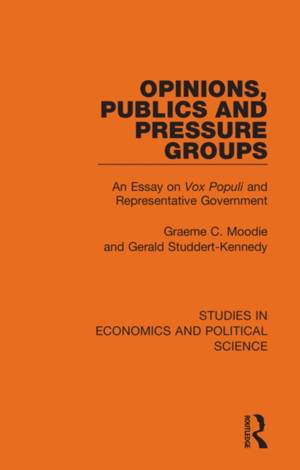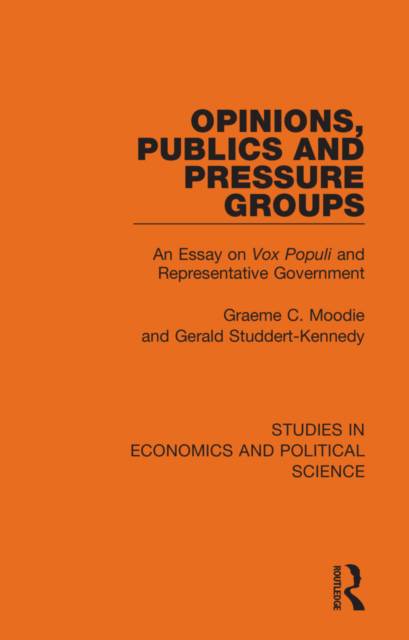
- Retrait gratuit dans votre magasin Club
- 7.000.000 titres dans notre catalogue
- Payer en toute sécurité
- Toujours un magasin près de chez vous
- Retrait gratuit dans votre magasin Club
- 7.000.0000 titres dans notre catalogue
- Payer en toute sécurité
- Toujours un magasin près de chez vous
Opinions, Publics and Pressure Groups
An Essay on 'Vox Populi' and Representative Government
Graeme C Moodie, Gerald Studdert-KennedyDescription
In the late 1960s representative democracy was under fire from various directions even in countries, like Britain and America, where it had appeared to be most secure and successful. Must democracy be a sham, either because of the power of pressure groups and other established decision-makers, or because 'the people' are too ignorant and irrational? What, in any case, does or can representative government mean in a complex industrial society - and what does it mean to be rational in politics?
It is to these and other vital issues that this book, originally published in 1970, directs itself. In the course of their argument the authors, who feel no contradiction between their academic and their 'radical democratic' commitments, draw extensively upon recent empirical studies of voting, pressure groups, and of the sociological and social psychological aspects of political behaviour in Britain and the USA at the time. Problems of the nature of such evidence, the conduct of attitude surveys and opinion polls, and the relationship between modern research and the traditional themes of political theory are also analysed.
Spécifications
Parties prenantes
- Auteur(s) :
- Editeur:
Contenu
- Nombre de pages :
- 112
- Langue:
- Anglais
- Collection :
Caractéristiques
- EAN:
- 9781032129242
- Date de parution :
- 22-11-21
- Format:
- Livre relié
- Format numérique:
- Genaaid
- Dimensions :
- 140 mm x 216 mm
- Poids :
- 281 g

Les avis
Nous publions uniquement les avis qui respectent les conditions requises. Consultez nos conditions pour les avis.






